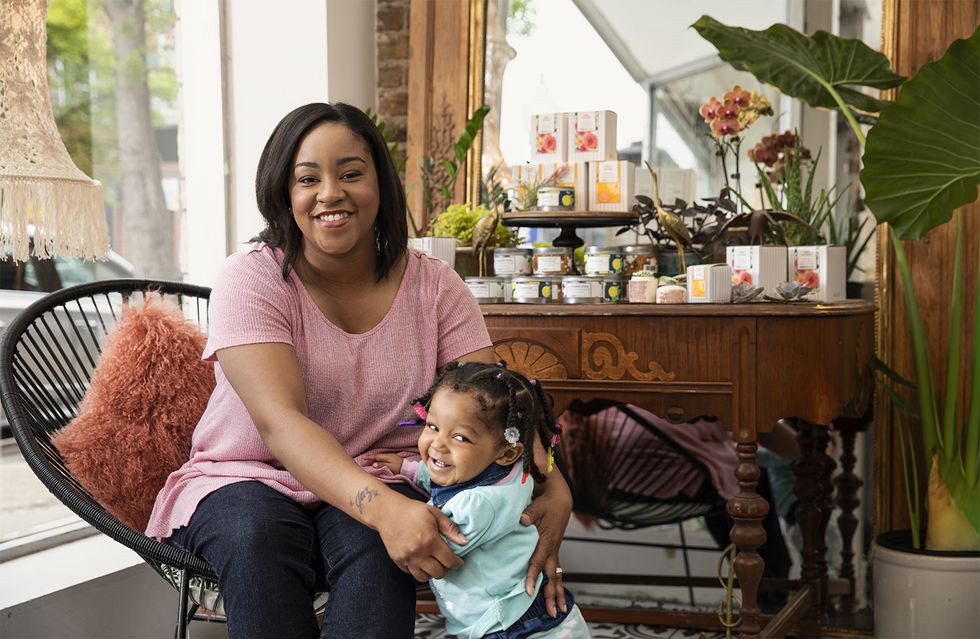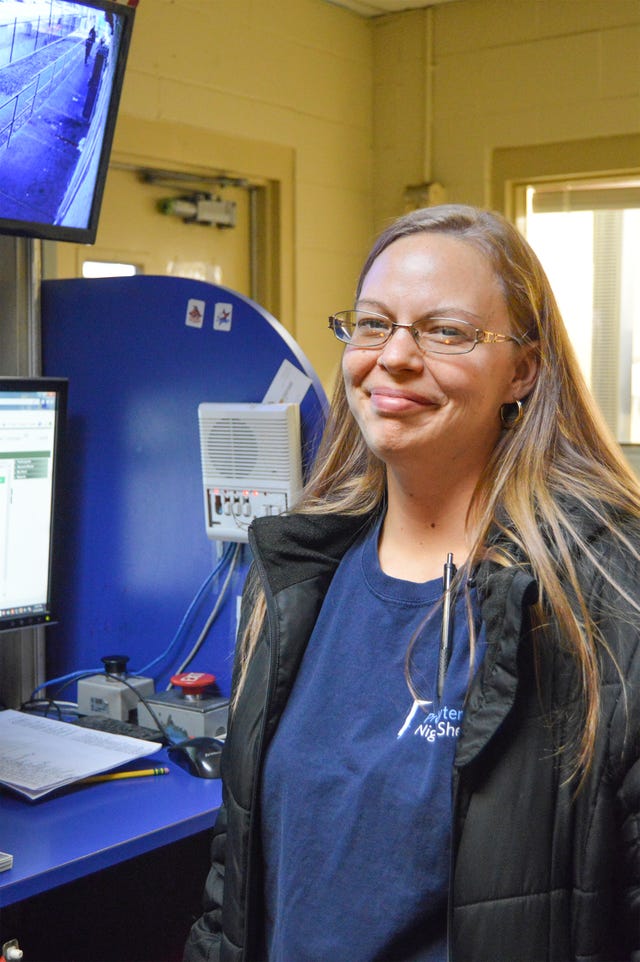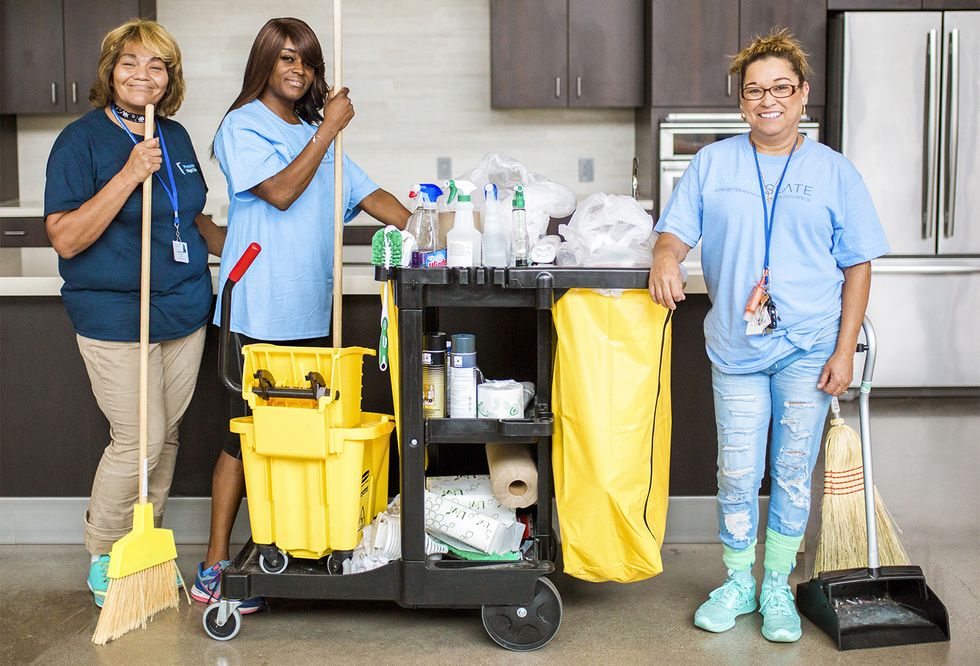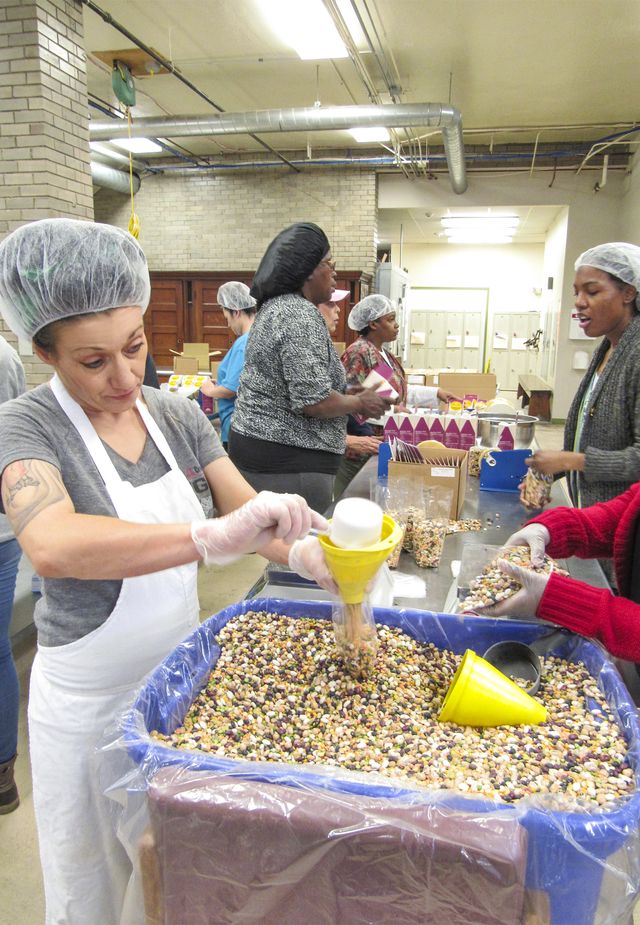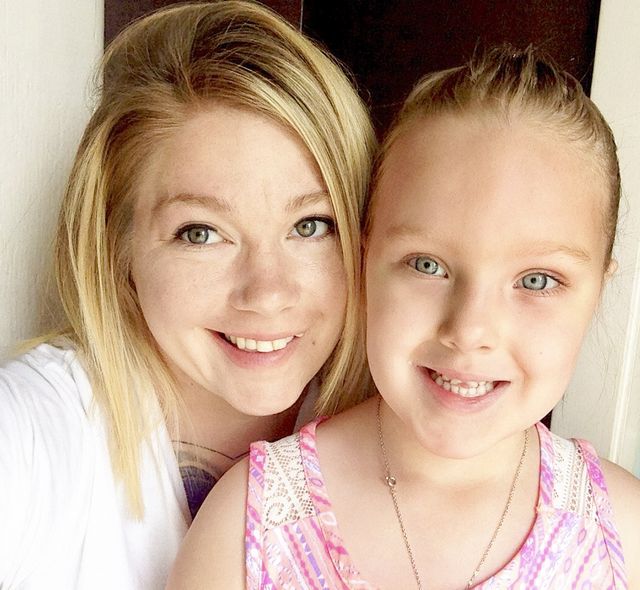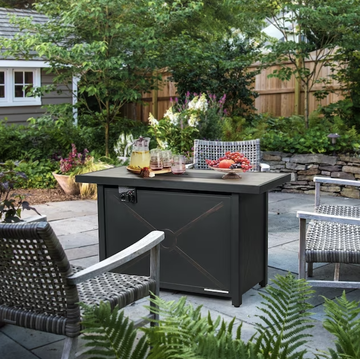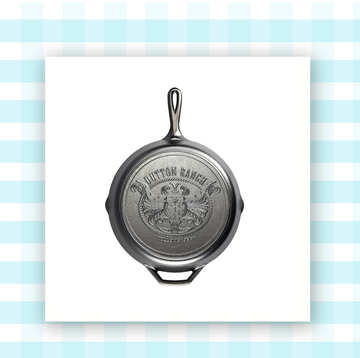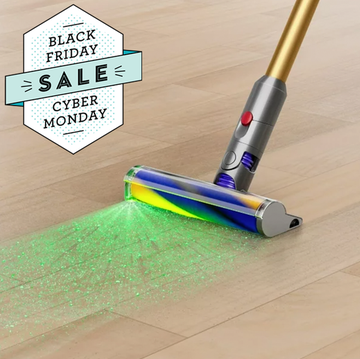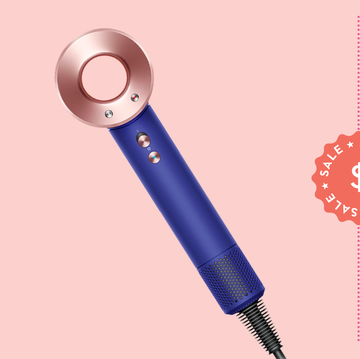Jasmine Stewart, a mother and an aspiring social worker, is a woman transformed. After unexpectedly getting pregnant at 16, she went from high school junior to new mom overnight. Suddenly, she felt as if she was flailing. "I was living with my parents; I didn't have an income. Everything seemed hopeless," she says.
Luckily, a friend told her about Bright Endeavors, a Chicago-based company that makes high-quality hand-poured soy candles. Its 16-week paid job-training program for mothers ages 16 through 24 includes free life-skills, job-skills, and financial-literacy classes. All proceeds from candle sales go back into the program.
In a matter of weeks, Jasmine was a Bright Endeavors all-star: She never missed a day, always arrived on time, and was offered an internship and then a permanent position at the candle company after finishing the program, steadily moving up in pay.
Today she works for Bright Endeavors' parent organization, New Moms, visiting and providing support for struggling families. She is married with three kids. "Never did I imagine I'd get as much support as I did," says Jasmine. "It's been the highlight of my life."
Homeless-outreach advocates Stephanie Piccirilli and Joan Pikas founded Bright Endeavors in 2007 to help inner-city homeless or at-risk women like Jasmine. "I wanted to intervene in the lives of these mothers early," Piccirilli says. "I'm hoping we touch two generations at once."
Building Community
Bright Endeavors is one of a growing number of businesses known as social enterprises that combine social consciousness with the market-driven approach of a traditional business.
Other examples include Ground Up, a Portland, Oregon, company that makes nut butters with a staff of disadvantaged women; the online retailer Branded Collective, which trains and employs sex-trafficking survivors to craft handmade metal jewelry; and the Minneapolis-based business Breaking Bread Café & Catering, which hires teenagers and adults who face barriers to employment as cooks, dishwashers, and servers.
Urban areas — like Baltimore, Detroit, San Francisco, Los Angeles, Nashville, and Memphis — where public transportation and social services tend to be concentrated are seeing an uptick in interest in social enterprises, as are rural areas heavily hit by the opioid crisis, like parts of the Rust Belt and the Southwest.
Kila Englebrook, president and CEO of the Social Enterprise Alliance, says her group started with 100 members in 2001 and now has 18 U.S. chapters and more than 1,000 members. "Simply put, social enterprise is a proven, profitable model for changing lives," she says.
Many social enterprises focus on creating jobs and fostering job skills in overlooked populations, especially women. The businesses are stepping in to help the perpetually overwhelmed social-services system and to overcome the reluctance of many employers to hire homeless or formerly homeless people.
"People are falling through the cracks, and social enterprises are responding to that need," says Nicole Simoneaux, a vice president at REDF, a venture fund that invests solely in social enterprises.
Saving Grace
Kristy Yates, 34, might not have a place to call home if not for the help of a social enterprise in Texas. She grew up with a supportive mom, with whom she started working cleaning houses at 14 to save up for a car. After graduating from high school, she got a certificate in billing and coding and landed a job transcribing medical records.
But in 2010, Kristy's daughter, ZaMya, passed away from SIDS at 7 weeks, and Kristy's mother got sick. The tough times sent Kristy into a deep depression that led to alcoholism and a DWI conviction that made it nearly impossible to get hired. Kristy and her mother both struggled with health issues, and her mom passed away in 2015.
Riddled with anxiety, Kristy landed at Presbyterian Night Shelter in Fort Worth, Texas, in 2016 and continued to struggle to find work. "As soon as you put a homeless shelter as your address, [employers] look at you in a different way," she says.
Fortunately, the facility had recently started Clean Slate, which places shelter residents in janitorial and other jobs and provides job-skills training, interview preparation, and résumé help.
Kristy got to work cleaning a church, offices, and Boys & Girls Clubs. After four months, she moved out of the shelter and was promoted to client-service specialist at Presbyterian Night Shelter, assisting guests and maintaining security. "This job has given me an opportunity to better myself that I wouldn't otherwise have had," says Kristy.
In Fort Worth, lack of income is the number one reason for homelessness among women, just above the inability to afford rent. In Texas, employers can have stringent requirements for background checks, so shelter case managers have a hard time placing their residents in jobs, explains Kirsten Ham, director of business development for Clean Slate.
In essence, social enterprises in Texas, as in other states, create the jobs instead of searching for them. "We become the one-stop shop, providing the benefits as well as the case management, income, and job-skills training," Ham says.
Today, Kristy is in her own apartment, thanks in part to Clean Slate. "Every day I go to work, it's like a refresher of why I do what I do: I treat people the way I want to be treated, because I've been there," she says. "It's a very humbling experience."
The Power of Hope
Celena Parker credits the social enterprise Women's Bean Project with helping her turn her life around. As she was growing up in Denver, her family life was a tangled mess of abuse and addiction. "It was never stable," she says. At 12, she ran away and lived on the streets. Over the next six years, she endured physical and sexual abuse and turned to drugs to numb hunger pangs.
Eventually, Celena was arrested for intent to distribute methamphetamines and sentenced to drug court, a treatment plan overseen by a judge, and community service — cleaning a high school for free every day for a year and a half. Celena's probation officer helped her get a job at Women's Bean Project, a program in Denver that produces pantry dry-goods staples with a workforce made up of women who are ex-convicts, recovering addicts, or domestic-violence survivors.
During their six to nine months at Women's Bean Project, participants work the production floor — measuring ingredients, affixing labels — and take life-skills classes, which put many on the path to $12- to $15-an-hour jobs.
"My life has come full circle," says Celena, who married and had a daughter after her stint at Women's Bean Project. She now works as a caregiver for children and a jail minister in Williston, North Dakota; she's also a cancer survivor and is writing a memoir. "After receiving so many blessings, I'm now able to give back," she says.
The experiences of Jasmine, Kristy, Celena, and the other women who have benefited from social enterprises have at least one common thread: hope. Gabrielle Caverl-McNeal, Bright Endeavors' assistant director of workforce development, shares one woman's journey: "She told me, 'When I came here, I was off track, not working, just trying to find what I wanted to do with my life. I'm leaving with $1,500 in savings, a GED, and a job.'"
Says Caverl-McNeal, "That kind of transformation is the reason we pour our blood, sweat, and tears into the work we do."
This story originally appeared in the July/August 2018 issue of Woman's Day.
